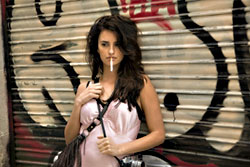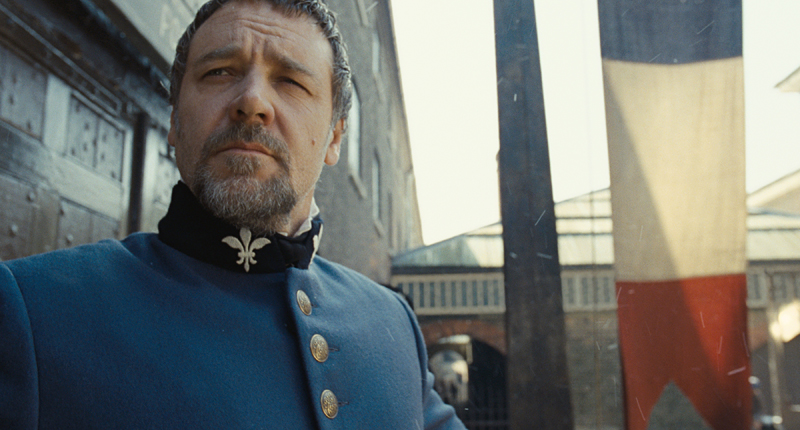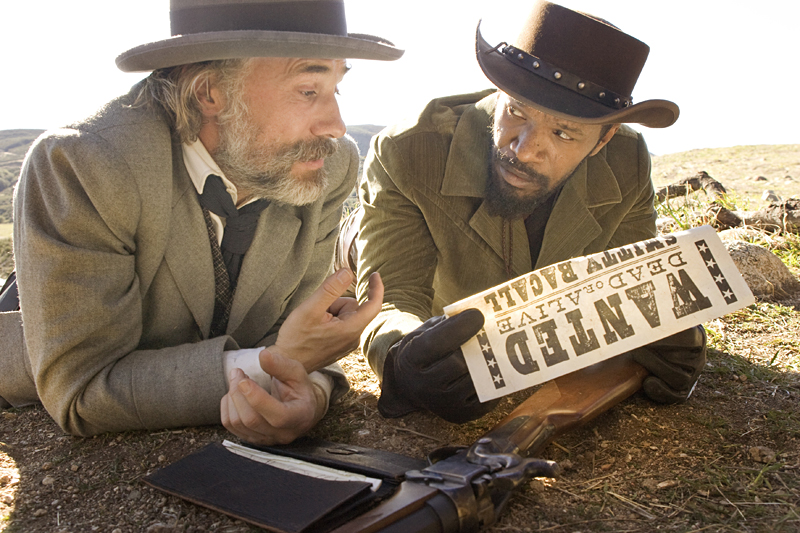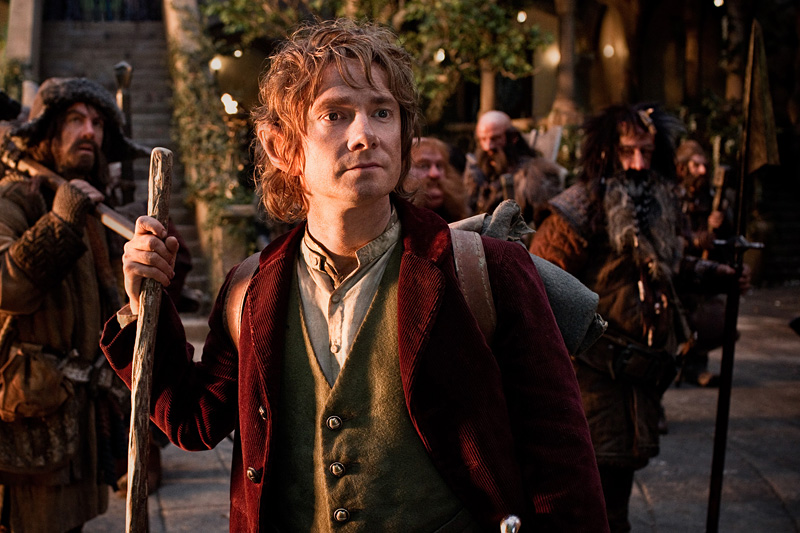Perhaps this review should begin with a disclaimer: Vicky Cristina Barcelona, Woody Allen’s 39th film as writer-director, will do little to endear itself to the happily-ever-after crowd or those who consider acts of infidelity punishable by impeachment. Leave it to Allen to make a romantic comedy in which all the major players end up either single, homicidal, or trapped in safe, boring marriages, and where the closest thing to a blissful relationship is a short-lived ménage à trois. Talk about modern love! Yet from those unlikely materials Allen has crafted a wry and thoughtful film about the peculiar stirrings of the heart.
Set in Spain, where the blood runs muy caliente under the drone of the Mediterranean sun, Vicky Cristina begins with two American girlfriends arriving in Barcelona for summer vacation. Brainy, long-legged, and demure, grad student Vicky (Rebecca Hall) is finishing a master’s thesis on Catalan identity. Blond, impetuous, and ready to go wherever her libido leads her, Cristina (Scarlett Johansson) is an aspiring filmmaker who has recently completed a short about—what else?—why love is so difficult to define. Early in their sojourn, they attend an art opening at which Cristina catches the eye of a broodingly handsome painter, Juan Antonio (Javier Bardem), renowned for his “violent relationship with a fiery woman” which ended in one—or perhaps both—of them trying to kill the other.
Vicky seems appalled, Cristina intrigued—so much so that when Juan Antonio invites both women to abscond with him for a romantic weekend in the town of Oviedo, she readily accepts. “But,” she adds teasingly, “you have to seduce me.”
Round and round they go: When food poisoning lands Cristina in bed in a way other than she intended, it’s Vicky who reluctantly sets off with Juan Antonio on a tour of Oviedo’s scenic riches and, in due course, falls under his spell. Later, the rules of attraction will reset themselves once more.
For a while, Vicky Cristina Barcelona seems to be shaping up as a diverting if insubstantial bedroom farce, with Bardem as a near-parody of the artist-lothario, Johansson as the vivacious bimbo, and Hall as the frigid intellectual who learns to let her hair down. But it’s one of the unexpected pleasures of Allen’s film that very little is as superficial as meets the eye. A hedonist at heart, Juan Antonio turns out to have his own complexities and depth; he may be an omnivore when it comes to attractive women, but really he’s an unapologetic consumer of beauty in all its manifestations: architectural, musical, physical. “Life is short, dull, and full of pain,” he tells the women upon their first encounter, effectively summarizing his personal worldview (and perhaps Allen’s). Likewise, the two female leads have been written by Allen with considerable nuance, even if they ultimately function as avatars for two opposing romantic philosophies—short bursts of intense passion versus a sustained, “meaningful” (whatever that means) relationship over the long haul.
Filming in Spain, as with England before it, seems to have rejuvenated Allen, who has put more care into things like composition, editing, and performance than was evident in most of his work of the late 1990s and early 2000s. The result is a movie of real energy, levity, and joie de vivre. Then, around an hour or so in, Penélope Cruz makes her entrance.
As Maria Elena, Juan Antonio’s erstwhile amor and muse, Cruz sets this heretofore perfectly enjoyable enterprise ablaze like a raging comic fireball. The movie’s much-ballyhooed make-out scene between Cruz and Johansson follows, though I would argue for another scene of the two actresses frolicking on a Barcelona hillside—Cruz in a flowing white sundress and toreador’s hat, Johansson in a sleeveless checkerboard top and tight denim shorts—as an even more feverish burst of high-test eros.
A whirling vortex of jealousy, passion, and lust, spewing her words in a melodic rush of English and Spanish, Maria Elena is at once too much to handle and the closest Vicky Cristina Barcelona comes to offering up its vision of the ideal woman. (And yes—ironically or not—she’s also the one most likely to put a knife in you.) Surely this will prompt the cultural guardians who remain unwilling to parse Allen the filmmaker from Allen the public figure to condemn Vicky Cristina Barcelona as an untenable defense of loose morals and male piggishness. But I for one found something oddly elating in the movie’s conviction that it is better to have made passionate love and maybe almost died at the hands of a jealous mistress than never to have loved at all. To quote Guy Lombardo and His Royal Canadians: “Enjoy yourself. It’s later than you think.”








